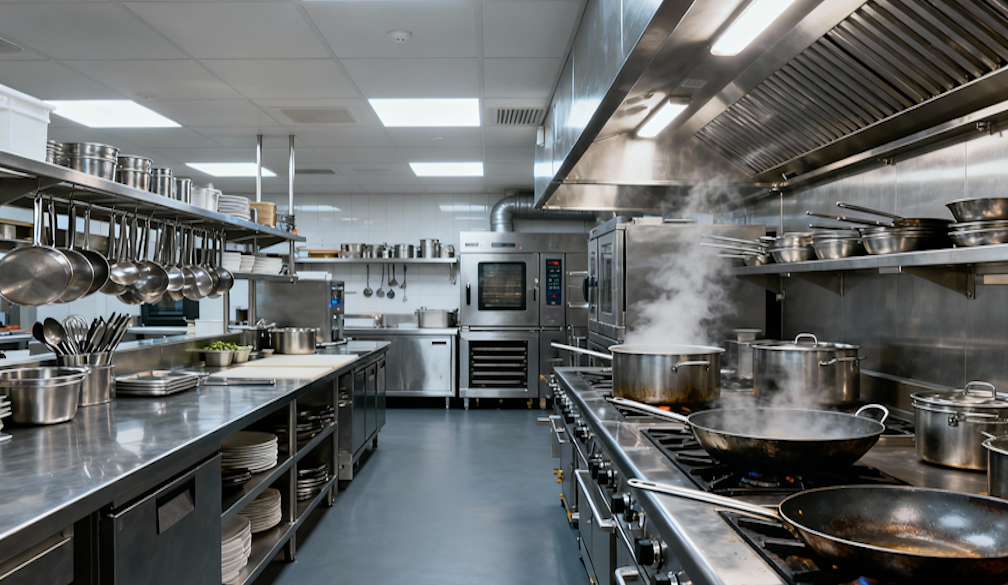The Importance of Heavy-Duty Commercial Food Equipment to the Hospitality Industry

The hospitality industry thrives on efficiency, consistency, and customer satisfaction. Whether it is a high-volume restaurant, a busy café, or a large hotel kitchen, the quality of food service depends largely on the equipment that backs it up behind the scenes. Among the most critical of this equipment is commercial food equipment. Sturdy equipment ensures smooth kitchen operations, reduces downtime, and directly impacts the overall customer experience. In a business where speed and quality are of utmost importance, the importance of dependable food equipment cannot be overstated.
Consistency in Food Quality
Hospitality venues rely on consistency to attract customers again and again. Guests expect the same flavour, presentation, and serving size whenever they purchase a menu item. Consistent commercial food equipment, including reliable commercial refrigeration, helps chefs and kitchen staff maintain this level of consistency by providing exact cooking temperatures, precise preparation functions, and dependable storage. Kitchens that lack adequate equipment will struggle to deliver consistent results, and this is something that can harm a venue's reputation.
Operational Efficiency
In hospitality, time is money. Downtime caused by defective or old equipment slows down the speed of service, which translates into delays and dissatisfied customers. Commercial cooking equipment designed for high-volume restaurants ensures that kitchens maintain efficiency to keep up with demand. With quick cooking equipment and proper refrigeration systems, good equipment prevents bottlenecks in the workflow so that staff can focus on delivering great food and service rather than endless equipment issues.
Reducing Downtime and Maintenance Costs
Breakdowns are costly. Aside from disrupting service, they also tend to require expensive repairs or replacements. Reliable commercial food equipment reduces the risk of sudden breakdowns, enabling kitchens to perform smoothly during intense service sessions. In the long run, investing in quality equipment saves businesses money by lowering maintenance costs and emergency repairs.
Compliance with Safety and Hygiene Standards
Food safety is the top priority in hospitality, and equipment plays an important role in maintaining standards of hygiene. Consistent refrigeration equipment stores ingredients at safe temperatures, and consistent cooking equipment ensures that food is cooked correctly. Underperforming equipment increases the risk of contamination and foodborne illness, with potentially disastrous consequences for customers and businesses. Consistent food equipment helps operators meet strict health and safety regulations while protecting their reputation.
Supporting Staff Performance
A well-equipped kitchen is not only productive, it also boosts staff morale. Chefs and kitchen staff who can rely on their equipment perform more confidently and efficiently. Struggling with inefficient or faulty equipment creates stress and slows workflow. Good commercial food equipment helps staff to perform their tasks adequately, resulting in a positive working environment and better overall performance.
Meeting Customer Expectations
In the competitive hospitality environment of today, customers have higher expectations than ever before. Restaurant-goers not only expect great food but also speedy service and high-quality consistency. Consistent commercial food equipment aids in satisfying these expectations by allowing kitchens to perform at their optimum level. Satisfied customers are more inclined to revisit and recommend an establishment to others, and this has a direct effect on business growth.
Long-Term Business Success
Lastly, the longevity of food service equipment shapes the long-term destinies of hospitality businesses. Quality equipment investment is not just an issue of coping with current demand but positioning the business for future development. When the number of customers increases, dependable equipment provides the foundation needed to scale up operations without compromising service standards.
Conclusion
Durable commercial food equipment is the backbone of the hospitality business. It assures consistency, increases efficiency, reduces expenses, and helps in staff and client satisfaction. For every hospitality operation, investing in durable equipment isn't an option—it's a necessity for delivering quality, safety, and long-term prosperity. By investing in durability, operations get their kitchens to perform flawlessly, even under the pressure of a demanding business.

